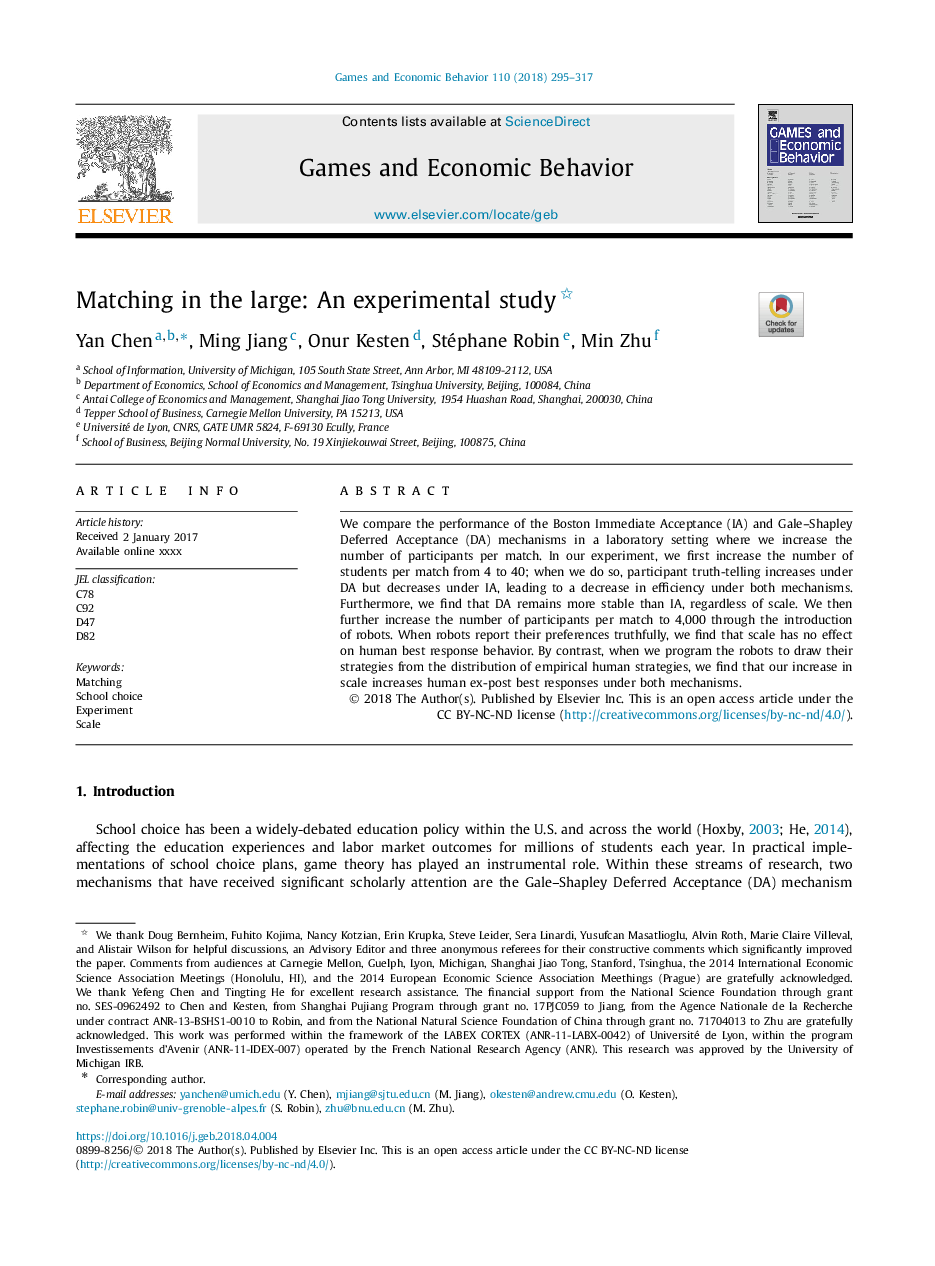| Article ID | Journal | Published Year | Pages | File Type |
|---|---|---|---|---|
| 7352836 | Games and Economic Behavior | 2018 | 23 Pages |
Abstract
We compare the performance of the Boston Immediate Acceptance (IA) and Gale-Shapley Deferred Acceptance (DA) mechanisms in a laboratory setting where we increase the number of participants per match. In our experiment, we first increase the number of students per match from 4 to 40; when we do so, participant truth-telling increases under DA but decreases under IA, leading to a decrease in efficiency under both mechanisms. Furthermore, we find that DA remains more stable than IA, regardless of scale. We then further increase the number of participants per match to 4,000 through the introduction of robots. When robots report their preferences truthfully, we find that scale has no effect on human best response behavior. By contrast, when we program the robots to draw their strategies from the distribution of empirical human strategies, we find that our increase in scale increases human ex-post best responses under both mechanisms.
Related Topics
Social Sciences and Humanities
Economics, Econometrics and Finance
Economics and Econometrics
Authors
Yan Chen, Ming Jiang, Onur Kesten, Stéphane Robin, Min Zhu,
